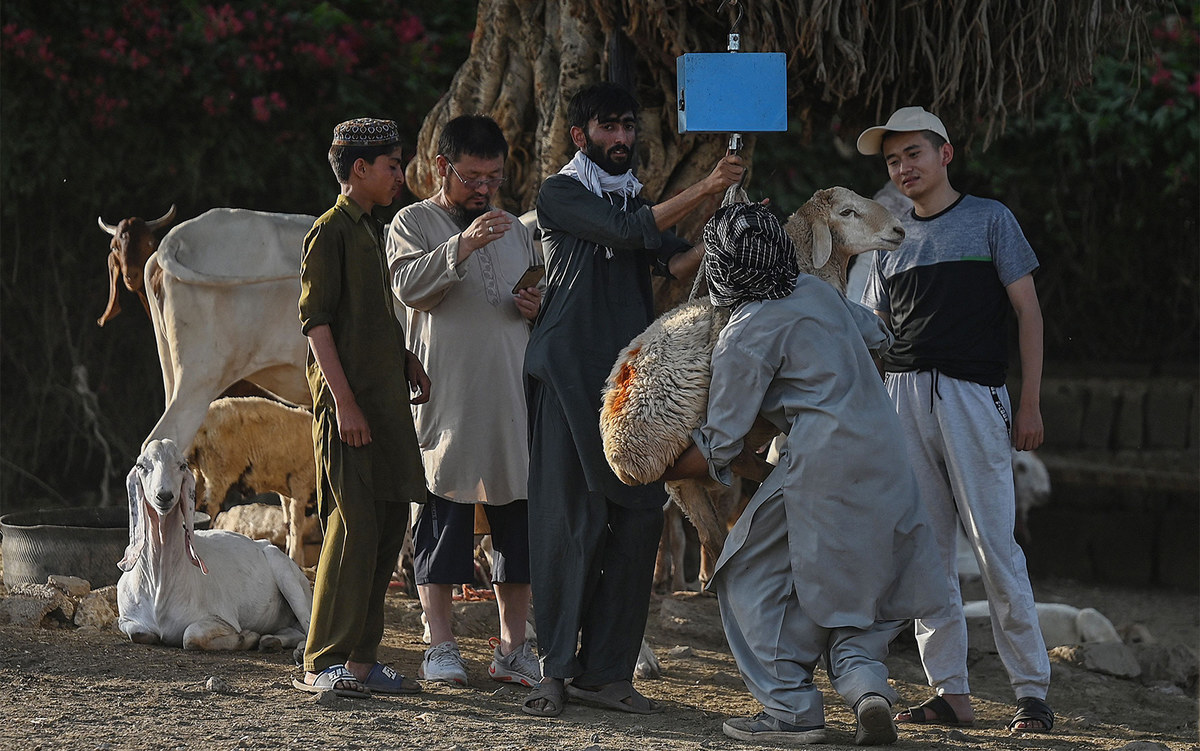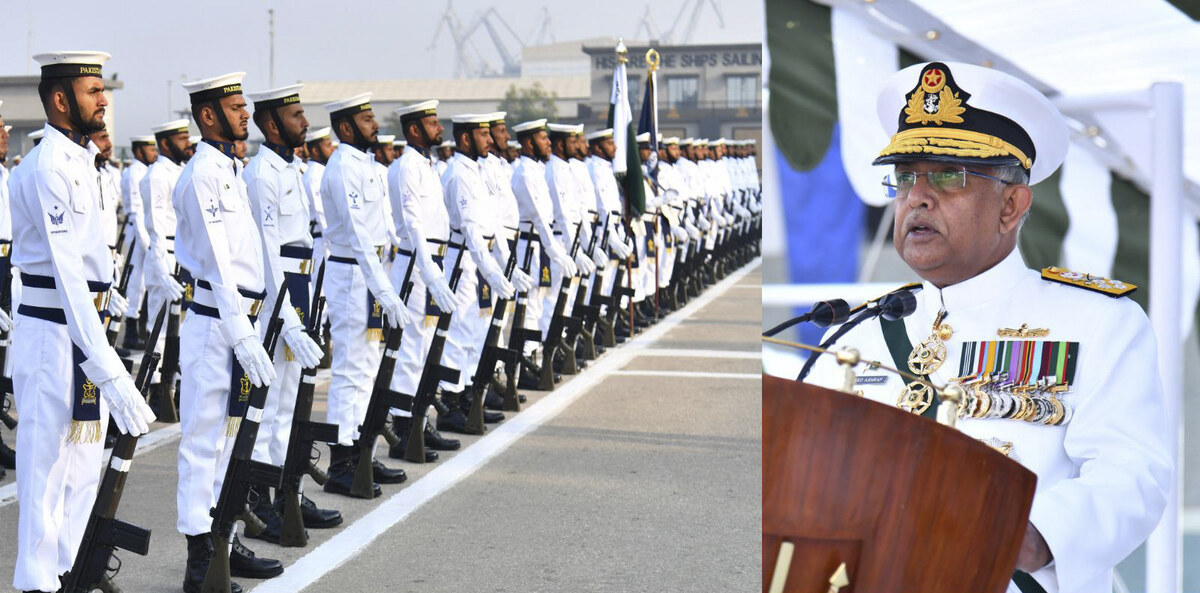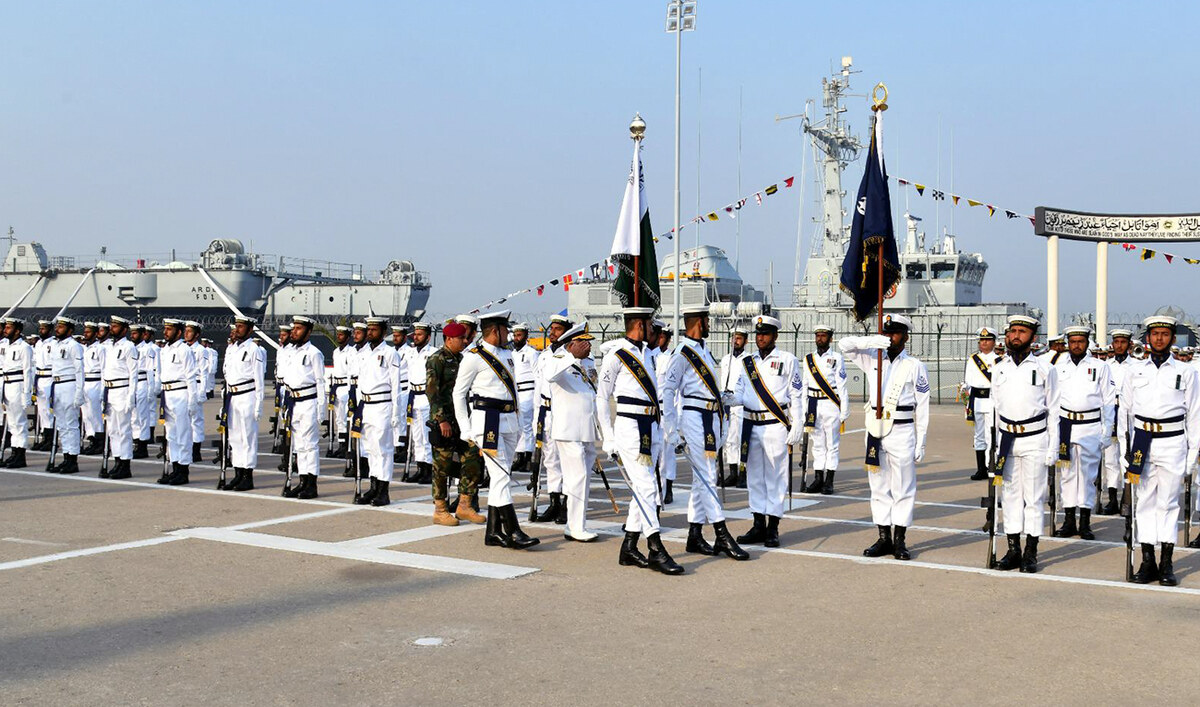ISLAMABAD: Underneath a large canopy in the luscious Margalla Hills of Islamabad, the sound of goats munching on dried grass and hay filled the air earlier this month as eager buyers jostled around them.
This is Islamabad’s famous goat, lamb and sheep market in the 500-year-old Mughal-era Saidpur village, famous for its cobblestone streets, ancient temples, handicraft stores and quaint eateries.
But before, during and after the Muslim holiday of Eid Al-Adha, Saidpur is also the go-to for anyone in the market for the best quality goats and sheep.
Traders set up shop here in large tents around the year but ahead of the annual Eid Al-Adha holiday, hordes of buyers frequent the market in search of the cattle of their choice.
“During Eid days, most of the work happens in 4-5 days, a few days before Eid, then on Eid day and during Hajj,” Malik Naseer, a trader at the market, told Arab News. “In four days, god willing, we are able to sell up to 300 animals.”

Customers check the weight of a goat at a livestock market in Islamabad on June 14, 2024, ahead of the Muslim festival of Eid al-Adha. (AFP/File)
Unlike other cattle markets specifically set up ahead of Eid in Islamabad and other cities in Pakistan, the Saidpur bazaar is busy throughout the year and even during and after Eid.
“After Eid sacrifice, people buy goats for charity, to cook at home, for weddings,” a resident of the area, Chaudhry Yamin, said. “Almost all the residents of Islamabad purchase goats from here. You can get good animals from here and get them cheaper also compared to other markets. And its also close [to residential areas].”
“AS OLD AS ISLAMABAD”
Trader Malik Jahangir said the market was as old as Islamabad itself.
“We have been in this business for the last 60 to 65 years,” he told Arab News as a customer inspected a goat at Jahangir’s tent. “Since the establishment of Islamabad [in 1967], we have been providing animals to the people of the city for their benefit.”

Customers check the weight of a goat at a livestock market in Islamabad on June 14, 2024, ahead of the Muslim festival of Eid Al-Adha. (AFP)
Goats at the Saidpur market are brought there from various Pakistani cities such as Bahawalpur, Talagang, Khushab, Swat and the Azad Kashmir region and different breeds come with different price tags.
And raising them is an expensive affair, Jahangir said, as feed alone cost Rs200-300 [$0.72-1.08] daily.
But prices this year were still lower than previous years, he contended, with the consumer price index (CPI) in May rising 11.8 percent from a year earlier, the lowest reading in 30 months and below the finance ministry’s projections.
“Previously, people were selling at around Rs. 1400 to Rs. 1500 ($5) per kilogram but this year we are selling at Rs. 1200 to Rs. 1300 ($4.5) per kilogram,” Jahangir said.
Customers disagreed about the low prices.
“The traders are good here as they bring goats from regular markets to sell here and we have a good experience here but this time I am feeling that prices are very high,” customer Khalid Paracha said.
“As meat rates are also high and animal prices are also high, we have come here on two visits but not been able to make a deal.”



















